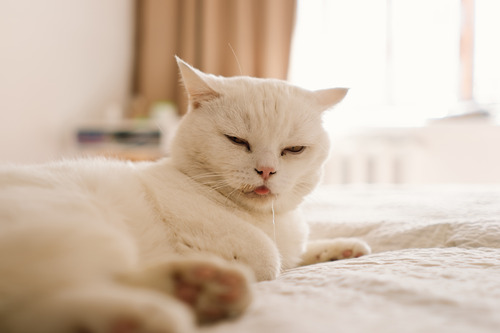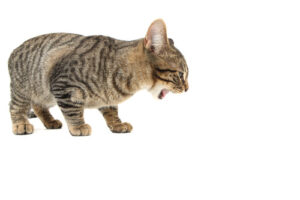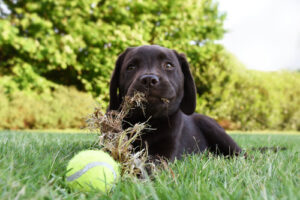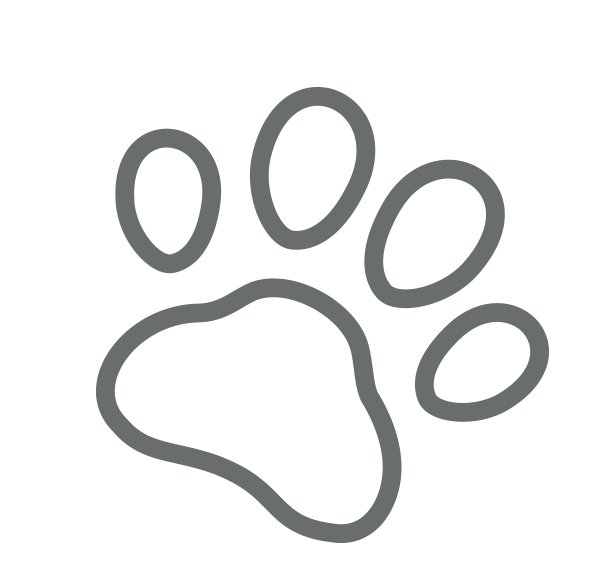You’re relaxing on the couch, gently scratching your cat’s chin, when you suddenly notice a wet spot forming on your lap. At first, you think it’s a little drool from their contented purring, but as the drooling continues, you start to wonder if something might be wrong. While occasional drooling can be harmless, a sudden or unusual change is often worth investigating. If your cat’s drooling has caught you off guard, the team at Triangle Animal Clinic in Conroe, TX, is here to provide answers. Call us at (936) 756-3318 or book an appointment online to address your concerns.
What Causes Cat Drooling?
Drooling in cats can occur for various reasons, ranging from harmless triggers to signs of underlying health issues. While some cats may drool occasionally, sudden or excessive drooling is worth investigating. Below are some common causes of cat drooling.
Dental Problems
Conditions such as gingivitis, tooth decay, or abscesses can irritate your cat’s gums and teeth, leading to excessive saliva production. Cats may also avoid eating or show discomfort when chewing if dental problems are present.
Nausea or Motion Sickness
Nausea from motion sickness, digestive upset, or exposure to toxins can also result in drooling. Cats are particularly sensitive to changes in their environment, and even short car rides can trigger nausea-related drooling.
Stress or Anxiety
Cats often express emotional distress in physical ways. Moving to a new home, adding a new pet to the household, or other changes in routine can lead to stress-related behaviors, including drooling.
Medical Conditions Linked to Cat Drooling
When drooling is sudden and unexplained, it could be connected to a medical issue that requires attention. Certain conditions can prompt increased salivation as the body reacts to discomfort or irritation.
Foreign Object in the Mouth
Cats are naturally curious and might accidentally chew on objects that get lodged in their mouths or throats. Items like string, small toys, or bones can irritate their oral tissue, causing drooling. If your cat paws at their mouth or seems uncomfortable, a foreign object could be the cause.
Poisoning or Toxicity
Exposure to toxic plants, household cleaners, or human medications can trigger drooling. Cats are prone to grooming themselves after contact with harmful substances, potentially ingesting them. Excessive drooling paired with lethargy or vomiting may indicate poisoning, requiring immediate veterinary care.
Respiratory Infections
Upper respiratory infections often lead to inflammation in the throat or nasal passages, causing discomfort and drooling. Additional symptoms such as sneezing, nasal discharge, or a lack of appetite may accompany the drooling.
Behavioral Reasons for Cat Drooling
Not all instances of drooling are related to medical issues. Behavioral factors, while less common, can still explain why your cat is drooling unexpectedly.
Overstimulation or Contentment
Some cats drool when they are especially relaxed or content, such as during petting sessions. This type of drooling is generally harmless and should subside when the excitement ends. However, if this behavior suddenly intensifies, it’s worth discussing with your veterinarian.
Reaction to New Scents or Tastes
Cats are highly sensitive to new smells and flavors. A drooling reaction can occur if they’ve licked or chewed something with an unusual texture or taste, such as a new treat or household item.
When Is It Time to Contact Your Veterinarian?
Determining whether your cat’s drooling requires veterinary attention depends on additional symptoms and changes in behavior. While occasional drooling can be harmless, persistent or severe episodes often signal a problem. Signs that you should consult your veterinarian include:
- Sudden or excessive drooling lasting more than a day.
- Drooling combined with vomiting, lethargy, or difficulty breathing.
- Visible swelling, redness, or bleeding in the mouth.
- Pawing at the mouth or difficulty eating.
Triangle Animal Clinic can provide thorough evaluations and professional care for your cat. Call us at (936) 756-3318 or book an appointment online if you notice unusual drooling or other symptoms.
How to Prevent Future Episodes of Cat Drooling
While not all drooling can be prevented, there are steps you can take to minimize potential triggers and maintain your cat’s overall health. Regular veterinary check-ups, proper dental care, and creating a stress-free environment can go a long way in reducing episodes of excessive drooling.
- Dental problems are a common cause of drooling, so routine cleanings and check-ups can prevent oral health issues from developing.
- Remove potential toxins or small objects that your cat could chew or ingest. Keeping harmful plants and chemicals out of reach is essential for their safety.
- Stress and anxiety can manifest as drooling, so providing your cat with a consistent routine and plenty of enrichment can help reduce emotional triggers.
- The sooner you address the underlying cause of drooling, the easier it is to resolve the issue. Don’t wait for symptoms to worsen before seeking professional care.
Sudden drooling in cats is not something to ignore, as it could indicate discomfort or an underlying issue. Triangle Animal Clinic in Conroe, TX, is here to help diagnose and address the cause of your cat’s symptoms. Whether it’s a dental concern, a foreign object, or something more serious, our team provides the care your cat deserves. Call us at (936) 756-3318 or book an appointment online to ensure your cat remains happy and healthy.





